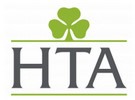Businesses in the UK ornamentals sector, worth more than £24 billion to the UK economy, face an uncertain future after the government ruled out financial support for plants and flowers that were wasted due to COVID-19 related market closures.
In a letter to the NFU, Defra minister Lord Gardiner said that offering compensation would not deliver value for money for the public, but that businesses should be encouraged to access other support measures such as CBILS loans.
In contrast, one of the UK’s largest competitors, the Netherlands, launched a 600m euro aid package for affected ornamentals businesses to mitigate losses and help with business recovery.
NFU horticulture board chair Ali Capper said: “It is very disappointing that government has felt that the ornamentals sector needs no further support other than a loans mechanism that will leave businesses in debt for many years to come. Nor that the support for an industry worth £24.2 billion, employing 568,700 people, and contributing £5.4 billion in tax revenue, would deliver value for the public.
“At the same time, our key competitors are being given the support that not only helps them survive but gives them the confidence to invest for the future. The Defra decision seems completely counter intuitive at a time when the UK is looking to take back control, and when improving the UK’s biosecurity is more important than ever.
“The number of ornamental businesses facing insolvency has reduced due to the industry’s successful campaigning for garden centres to be among the first retailers allowed to re-open. The NFU, alongside the Horticultural Trades Association (HTA) and wider industry, has also been engaging with the financial services sector to explain the difficulties growers have found with the CBILS scheme which has led to banks developing more flexible options to support growers’ concerns.
“The NFU will continue to work with industry stakeholders to ensure this decision does not undermine the viability of the sector and that the industry is recognised and supported by government in future policy making.”
The Horticultural Trades Association (HTA) Chairman, James Barnes, said: “The decision by DEFRA not to provide financial support to ornamental growers is hugely disappointing and a significant blow for many English plant nurseries.
“Since March the HTA and the National Farmers' Union (NFU) have been engaged with Defra to work towards a positive outcome and provided robust evidence that supported the need for a grant aid scheme - like the one put in place by the Dutch government to save its industry. The Northern Ireland Executive has accepted the need. We’re continuing discussions with the Scottish Government for a support package.
“We were successful in leading the campaign to get garden centres re-opened within the first phase of relaxing lockdown and that was very welcome for the sector. However, more than half of British ornamental growers (52%) expect a further downturn in sales throughout July as they have not been able to plant crops during lockdown and this has increased imports.
“Dutch and other European countries with garden centres that remained open and that have supported their industries are already taking advantage of this. While UK garden centres have a strong track record of sourcing British plants, the pressures of COVID-19 has forced many to look abroad, with almost three-quarters of retailers (72%) claiming that they are currently unable to get the stock of bedding plants their business needs from UK growers.
“Meanwhile, the recently proposed Border Operating Model and new January trading arrangements represent a very significant challenge for the sector in just a few months’ time. These proposals would, if remain unchanged, deal another blow to an already weakened sector.
“Now, more than ever, we need to support domestic production to provide resilience that comes with a strong UK based horticultural industry.
“My primary concern is that the value of this £24bn industry is not fully recognised within Government, both economically and in terms of its contribution to the Government’s 25 Year Environmental plan and the nations wider climate change ambitions.
“We welcome DEFRA’s commitment to work with the industry on developing a strategic recovery plan for the sector. We do believe that with the right recognition and policies this industry can become an engine of growth in a post-COVID, post-Brexit world.
“Confidence is a hugely powerful instrument in delivering growth and while there will be many things that we the industry and government can do to help this, in the long run, we look to government now to show willing by giving priority to the following:
- assurance that garden centres will retain ‘essential retailer’ classification for future COVID-19 related planning.
- ensuring that forthcoming Brexit trade arrangements will balance free trade with the UK’s biosecurity needs – and to work with the industry to understand the complex supply chain issues.
- spearheading a ‘Buy British’ campaign for all direct and local government procurement processes for forthcoming landscape projects.”
For more information: NFU
NFU
www.nfuonline.com
 Horticultural Trades Association
Horticultural Trades Association
www.the-hta.org.uk
